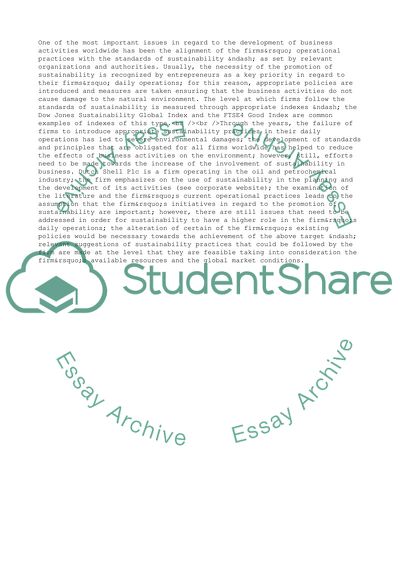Cite this document
(Sustainability in Business: Dutch Shell Plc Case Study, n.d.)
Sustainability in Business: Dutch Shell Plc Case Study. https://studentshare.org/business/1737221-sustainability-in-business
Sustainability in Business: Dutch Shell Plc Case Study. https://studentshare.org/business/1737221-sustainability-in-business
(Sustainability in Business: Dutch Shell Plc Case Study)
Sustainability in Business: Dutch Shell Plc Case Study. https://studentshare.org/business/1737221-sustainability-in-business.
Sustainability in Business: Dutch Shell Plc Case Study. https://studentshare.org/business/1737221-sustainability-in-business.
“Sustainability in Business: Dutch Shell Plc Case Study”. https://studentshare.org/business/1737221-sustainability-in-business.


